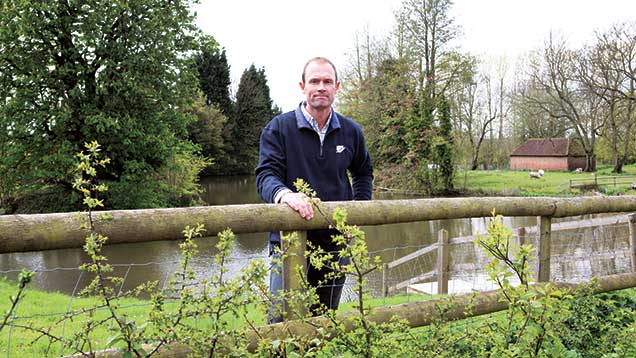Farmer Focus: Kenyan farmers show the way on biopesticides
 © Alexandra Joseph
© Alexandra Joseph Thank you to the Oxford Farming Conference for putting this year’s presentations online.
Watching from the office, two speeches stood out for me – one from the Guardian journalist George Monbiot on banning subsidies and one from Louise Labuschagne on ambitious integrated pest management (IPM).
Whether you agree with the speakers or not we may have to prepare ourselves for their visions of the future.
See also: I learn about blackgrass
I was keen to listen to Mr Monbiot’s ideas as I would love not to be dependent on subsidies, but the solution is obviously not simple.
However, to compare them to the benefits system or feudal farming in reverse seemed a little strange, and to then claim that one farmer he knows uses his SPS cheque to go deer stalking for a fortnight and that there was a lack of regulation in UK farming ultimately left me disappointed.
He should speak to the Australian farmer I recently showed around whose brow became knotted when I started talking about cross-compliance and replied that he farmed just how he liked, before adding that actually, no, he did have to stop burning stubble when it was more than 40C.
Whatever the strength of Mr Monbiot’s arguments though, as the OFC’s annual report pointed out, the basic payment in 2019 is likely to be 25% smaller in real terms than it was in 2013, so it’s happening by stealth.
A much more positive Mrs Labuschagne has a company called Real IPM, which produces affordable and effective fungal and bacterial biopesticides.
She bemoaned excessive regulation for their lack of availability here despite widespread use in Africa.
I have long been frustrated that we just talk a good IPM game rather than actually play it, but we simply don’t have an abundance of tools available that are powerful enough for us to replace pesticides on any scale.
If Mr Monbiot, consumers and regulators want chemical pesticide use to be severely curtailed then the positive enabling of alternatives, such as these environmentally benign biopesticides, is essential.
Ironically, it appears Real IPM actually benefited from UK government funding when getting its products cleared in Kenya.
Andy Barr
Andy Barr farms 630ha on a mixed family farm in Kent, including 430ha mainly of winter wheat, oilseed rape and spring barley. The rest is in an OELS scheme and grazing for 500 Romney ewes and 40 Sussex cattle.
